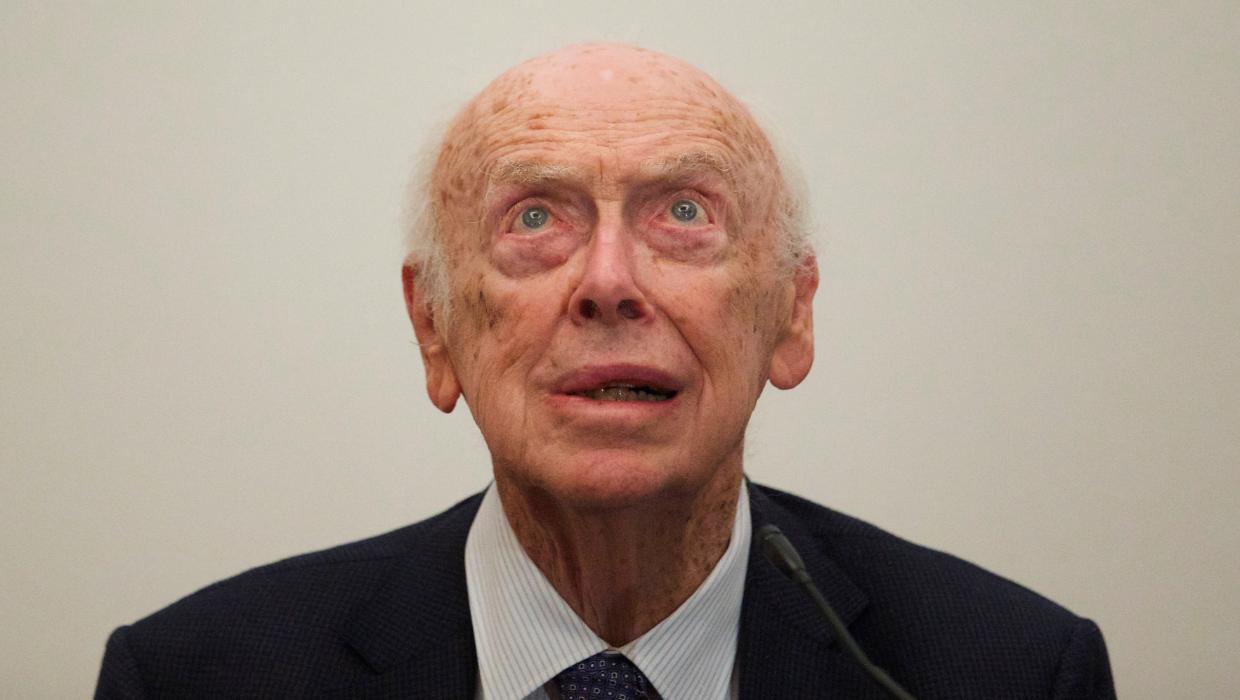Science
Controversial Genetic Pioneer James Watson Passes Away at 95

James Watson, the co-discoverer of the double helix structure of DNA, has died at the age of 95. His death marks the end of an era for a scientist whose groundbreaking work in 1953 revolutionized molecular biology. Watson’s discovery opened new frontiers in genetics, leading to significant advancements in medicine and biotechnology.
Born on April 6, 1920, in Chicago, Illinois, Watson became a prominent figure in science at a young age. His collaboration with Francis Crick at the University of Cambridge resulted in a publication in the journal Nature that detailed the now-famous twisted-ladder structure of DNA. This work earned them both the Nobel Prize in Physiology or Medicine in 1962, alongside Maurice Wilkins, who contributed to the understanding of DNA through X-ray diffraction studies.
Controversy and Criticism
Despite his scientific accolades, Watson’s later years were marred by controversy. He faced significant backlash for making offensive and racially charged remarks in various interviews and public appearances. These comments led to professional censure and resulted in his resignation from the Cold Spring Harbor Laboratory, where he had served as president for over three decades.
In 2019, Watson’s comments regarding intelligence and race garnered extensive media coverage, prompting many organizations and institutions to distance themselves from his views. His statements drew condemnation from the scientific community and beyond, highlighting the ongoing debates around ethics in science and the responsibilities of researchers.
Watson’s passing has sparked a renewed discussion about his complex legacy. Many in the scientific community reflect on the implications of his contributions to genetics, weighed against the controversy surrounding his personal beliefs. The duality of his impact on science—both as a pioneer and a polarizing figure—continues to resonate.
A Legacy of Discovery and Debate
Throughout his career, Watson remained a vocal advocate for science and education. He authored several books, including the influential “The Double Helix,” where he provided a personal account of the discovery process that would change the understanding of biological science.
His work laid the foundation for modern genetics, influencing everything from medical research to biotechnology innovations. As researchers continue to explore the complexities of genes and their functions, Watson’s initial discovery remains a cornerstone of biological science.
In recognition of his achievements, various institutions and awards have been named in his honor, perpetuating his influence in the field of genetics. However, the controversy surrounding his remarks serves as a reminder of the ethical responsibilities that accompany scientific exploration.
The world of science mourns the loss of a figure who, despite his shortcomings, played an essential role in shaping the course of modern biology. James Watson’s contributions to our understanding of life at the molecular level will not be forgotten, but they will be viewed within the broader context of his complex and often contentious legacy.
-

 World3 months ago
World3 months agoTest Your Knowledge: Take the Herald’s Afternoon Quiz Today
-

 Sports3 months ago
Sports3 months agoPM Faces Backlash from Fans During Netball Trophy Ceremony
-

 Lifestyle3 months ago
Lifestyle3 months agoDunedin Designers Win Top Award at Hokonui Fashion Event
-

 Sports3 months ago
Sports3 months agoLiam Lawson Launches New Era for Racing Bulls with Strong Start
-

 Lifestyle3 months ago
Lifestyle3 months agoDisney Fan Reveals Dress Code Tips for Park Visitors
-

 World4 months ago
World4 months agoCoalition Forms to Preserve Māori Wards in Hawke’s Bay
-

 Health3 months ago
Health3 months agoWalking Faster Offers Major Health Benefits for Older Adults
-

 Politics3 months ago
Politics3 months agoScots Rally with Humor and Music to Protest Trump’s Visit
-

 Entertainment4 months ago
Entertainment4 months agoExperience the Excitement of ‘Chief of War’ in Oʻahu
-

 Top Stories4 months ago
Top Stories4 months agoUK and India Finalize Trade Deal to Boost Economic Ties
-

 World4 months ago
World4 months agoHuntly Begins Water Pipe Flushing to Resolve Brown Water Issue
-

 Science4 months ago
Science4 months agoNew Interactive Map Reveals Wairarapa Valley’s Geological Secrets









